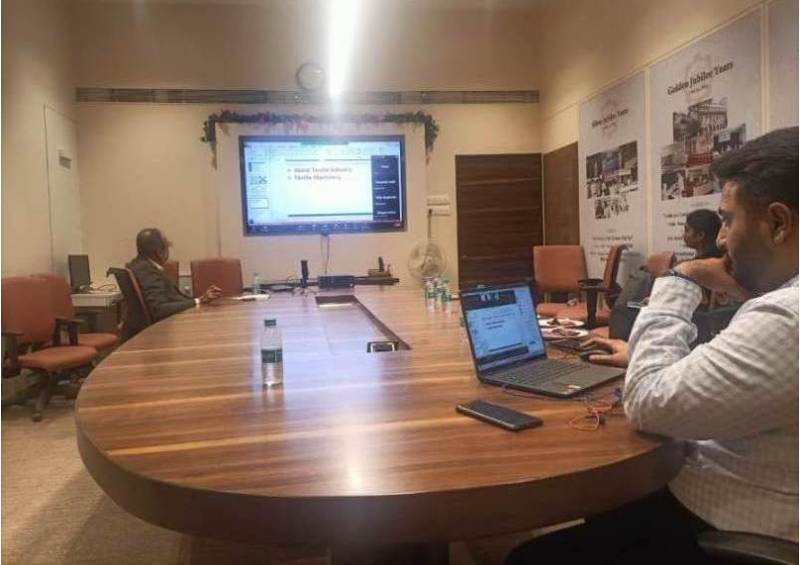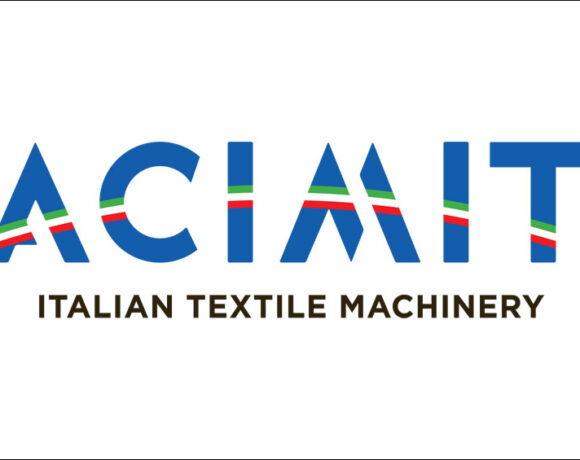ITAMMA Webinar On Development Of Textile Capital Goods Sector

ITAMMA kick-started a series of online webinars for the development of capital goods sector of textile industry with the funding support of Ministry of Heavy Industry, with a webinar on November 21.
Nimesh Shah, President, ITAMMA in his welcome address stated that the statistics of capital goods sector of textile industry is not encouraging as we are fulfilling only 50-55 percent of home consumption while about 83 percent imports are reported for accessories and components.
“And so the presentations made today by eminent speakers and stalwarts of the industry will definitely help in bringing out the development of the capital goods sector especially in the textile engineering sector,” he added.
Dr Anirban Guha, Professor at IIT-Mumbai gave a presentation on initiatives taken at IIT-Mumbai on 3–D fabric, cloth roll mechanism, bullet proof jackets and hydrogen pressure vehicles.
“Research has led to technological advancements and innovations that can benefit the capital goods sector,” he added.
“This could include developing new manufacturing processes, improving the efficiency of machinery, and exploring new materials for manufacturing and production,” Dr Guha informed.
Dr Guha also spoke on the SINE-Society for Innovation and Entrepreneurship, which is one of the earliest incubators in academia with a potential to create startups focusing on economic growth and strategic value.
Dr. Saatish Lavate, Faculty, Department of Textiles, DKTEs Textile and Engineering Institute also spoke on initiatives taken at the institute in the capital goods sector of textile industry.
He informed about all the innovative machines that the students had designed and developed after intense studies and research.
He emphasised the need for technology transfer activities, ensuring that the latest research findings and technological advancements are applied in real-world applications.
“This can involve collaborating with industry partners to implement research outcomes, licensing technologies, or establishing spinoff companies based on academic innovations,” Dr Lavate stated.
Mehul Goswami, Director & Digital Business Enabler at Sambuq.com highlighted how the ITAMMA Business Enabler Platform powered by Sambaq offers valuable information to members.
He also shared future plans for enhancing its role in knowledge and business development for the textile engineering and manufacturing industries.
ND Mhatre, Director General (Tech), ITAMMA explained the various schemes of MHI stressing upon the benefits to academicians in taking forward their innovations from pilot plant to production.
He specifically stressed upon the important role of industry experts in bringing this process as a successful experiment, as students can offer out-of-box ideas.
“However the same can be successfully disseminated on the grass-root or production level with the help of experts, who have enormous expertise and experience in the implementation of such projects,” he noted.
While summing up his presentations, Mhatre mentioned that an UNESCO study of gross expenditure in R&D spend by the government, business enterprises and educational institutes informs that India stands second highest, while Japan is far behind, but still technology in Japan is at top.
ND Mhatre further informed that a detailed study needed to be performed about the total number of innovations applied for, attended, successful/ failure and their reasons, etc.
This will help in strengthening the eco-system of fund allocation and also in saving the considerable time.
The webinar showcased the industry’s commitment to innovation, efficiency, and the continuance of technological excellence with the help of government initiatives.
It shed light on how academic research translates into technological advancements, the pivotal role of education in shaping the workforce, and the collaborative initiatives that strengthen the ties between academia and industry.
The event underlined ITAMMA’s dedication to empowering its members and fostering industrial growth.














